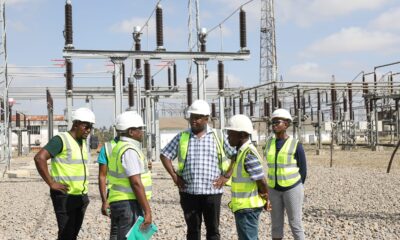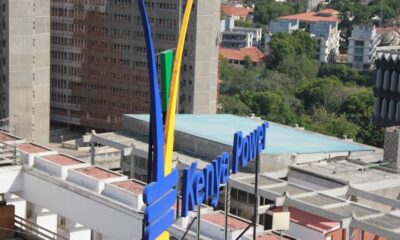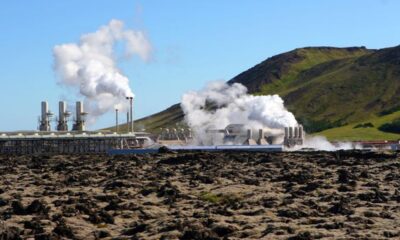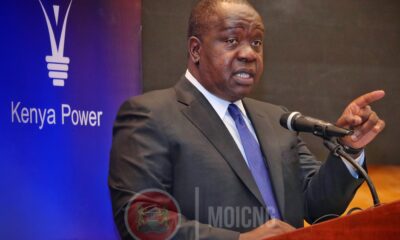Economy
Kenya Power Has Paid Sh90bn To Private Electricity Producer Since 2010
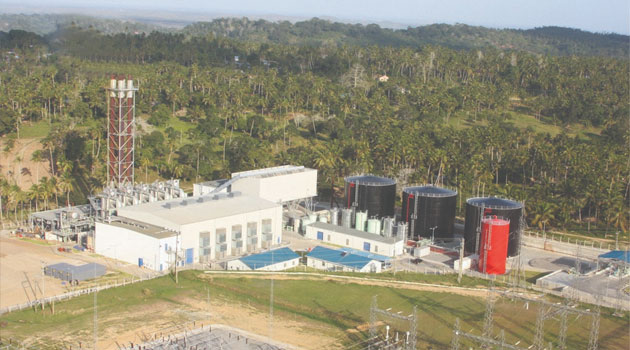
NAIROBI, Kenya, Sep 15 – The government has paid Sh90 billion to electricity generator Rabai Power since singing a Power Purchase Agreement (PPA) with Kenya Power, the sole electricity distributor, in 2010.
While appearing before the National Assembly Committee on Energy, Rabai Power Finance Manager Zablon Okwoku revealed that the company charges Sh8 per kilowatt as a variable charge excluding fuel and other related costs.
The meeting was convened by lawmakers who expressed concern over the amount charged by Rabai Power saying Kenya Electricity Generating Company (KenGen) which produces about 75 pe rcent of electricity consumed in the country, is much cheaper.
“Energy charge is 0.0063 Euros per kilowatts hour, excess starts are 394 Euros per start, and the fuel charge varies from time to time between Sh8-12 per kilowatt hour,” Okwoku said.
He was hard pressed by members of the committee led by Garissa Township MP Aden Duale to explain why the company received Sh2.6 billion capacity charge from Kenya Power in the 2019/2020 financial year.
“You are paid 2.6 billion shillings even in the previous years. Why were you paid that money? You are paid that money and what Kenya Power does is that it transfers that payment it has given you to the ordinary Kenyan’s bill. This is why electricity bills are very high in this country,” Duale stated.
His sentiments were echoed by Gem MP Elisha Odhiambo who termed the 20-year deal between Kenya Power and Rabai as “total theft.”
“Why would you keep fuel and wait to give back fuel when you are closing the plant? It looks like there is an insider business in this company. Capacity charge is hot air because they are paid for supplying nothing,” Odhiambo retorted.
Kenya Insights allows guest blogging, if you want to be published on Kenya’s most authoritative and accurate blog, have an expose, news TIPS, story angles, human interest stories, drop us an email on [email protected] or via Telegram
-

 Grapevine2 weeks ago
Grapevine2 weeks agoAlleged Male Lover Claims His Life Is in Danger, Leaks Screenshots and Private Videos Linking SportPesa CEO Ronald Karauri
-

 Grapevine1 week ago
Grapevine1 week agoRussian Man’s Secret Sex Recordings Ignite Fury as Questions Mount Over Consent and Easy Pick-Ups in Nairobi
-

 Investigations5 days ago
Investigations5 days agoMulti-Million Dollar Fraud: Three Kenyans Face US Extradition in Massive Cybercrime Conspiracy
-

 Economy4 days ago
Economy4 days agoIran Demands Arrest, Prosecution Of Kenya’s Cup of Joe Director Director Over Sh2.6 Billion Tea Fraud
-

 News3 days ago
News3 days agoTHE FIRM IN THE DOCK: How Kaplan and Stratton Became the Most Scrutinised Law Firm in Kenya
-

 Business5 days ago
Business5 days agoA Farm in Kenya’s Rift Valley Ignites a National Reckoning With Israeli Investment
-

 Business2 weeks ago
Business2 weeks agoM-Gas Pursues Carbon Credit Billions as Koko Networks Wreckage Exposes Market’s Dark Underbelly
-

 Africa7 days ago
Africa7 days agoFBI Investigates Congresswoman Ilhan Omar’s Husband’s Sh3.8 Billion Businesses in Kenya, Somalia and Dubai



